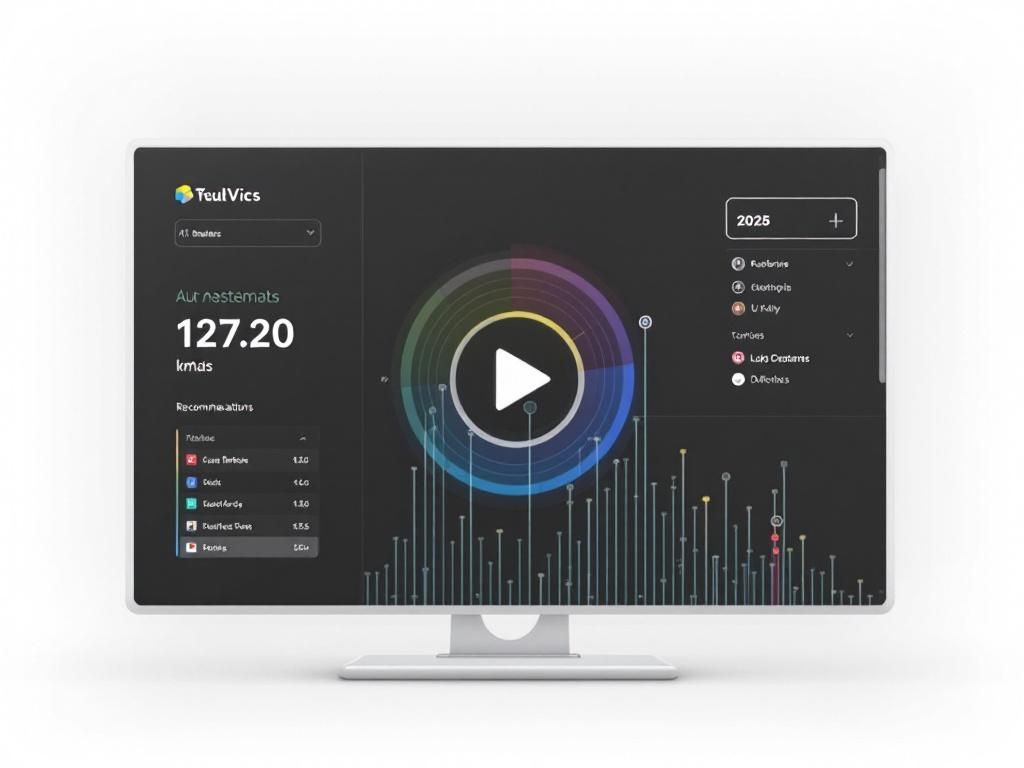As we advance deeper into the digital age, the ways in which we consume media are transforming rapidly. Streaming services have become a central part of our entertainment ecosystem, yet the challenge remains: how do platforms effectively deliver content that resonates with individual users? Enter artificial intelligence (AI), a game changer that promises to redefine personalized recommendations in streaming by 2025.
As we move into 2025, the landscape of streaming services is poised for a significant transformation, largely driven by AI-based recommendations. These advanced algorithms not only enhance user engagement by curating personalized content, but also streamline the steps in the content creation process, ensuring creators can deliver more relevant offerings to their audiences.
The Evolution of Streaming Services
Streaming services have evolved significantly since their inception. Initially, platforms like Netflix and Hulu relied on simple algorithms based on user preferences and viewing history. However, the landscape has drastically changed with the incorporation of AI and machine learning technologies.
Key Milestones in Streaming Evolution
- Early 2000s: The rise of on-demand video streaming.
- 2010: Introduction of personalized watch lists.
- 2015: Enhanced algorithms using collaborative filtering.
- 2020: AI begins to play a significant role in content recommendations.
- 2025: Expected integration of advanced AI for predictive analytics.
How AI is Shaping Content Recommendations
AI technologies, particularly machine learning, are fundamental in reshaping how streaming platforms understand user preferences. By leveraging vast amounts of data, these technologies can predict what users are more likely to watch next, enhancing user experience.
Machine Learning Algorithms
Machine learning algorithms can be classified into several types, each playing a unique role in recommendations:
- Collaborative Filtering: This method suggests content based on the preferences of similar users.
- Content-Based Filtering: Recommendations are made based on the characteristics of items a user has previously liked.
- Hybrid Systems: Combines both collaborative and content-based filtering to improve accuracy.
The Role of Big Data
The effectiveness of AI recommendations is directly tied to the abundance of data available. Streaming services collect immense amounts of information, including:
| Data Type | Description |
|---|---|
| User Behavior | Viewing habits, likes, and dislikes. |
| Engagement Metrics | Time spent on content, completion rates. |
| Social Influences | What friends and social networks are watching. |
| Demographics | Age, location, and other profile information. |
Benefits of Using Big Data
Integrating big data with AI provides several advantages:
- Enhanced Personalization: Tailors recommendations to individual tastes.
- Predictive Insights: Anticipates future viewing trends.
- Improved User Retention: Keeps users engaged by continuously adapting to their preferences.
The Future Landscape of Streaming by 2025
As we look toward 2025, several trends are emerging that will further shape the future of AI-based recommendations in streaming.
Increased Use of AI-Driven Content Creation
AI isn’t just about recommendations; it’s also extending into content creation. Streaming platforms are beginning to utilize AI to analyze audience preferences when developing new shows and movies.
Enhanced Emotional Intelligence
AI systems are evolving to understand user emotions through facial recognition and sentiment analysis. This could lead to even more personalized recommendations based on the mood of the viewer.
Real-Time Feedback Integration
Future streaming services may incorporate real-time feedback mechanisms, allowing users to adjust their preferences instantly. This interactivity could lead to a more dynamic and engaging viewing experience.
Challenges and Considerations
Despite the advantages, there are challenges to consider:
- Data Privacy: The collection and use of personal data raise significant privacy concerns among users.
- Algorithmic Bias: AI recommendations may reinforce existing biases if not properly managed.
- Content Overload: With too many choices, users may struggle to find relevant content.
Addressing Challenges
To mitigate these challenges, streaming services must adopt transparent data practices and develop algorithms that promote diversity in recommendations.
The Impact on User Experience
The integration of AI in streaming services will elevate user experience in various ways:
- Simplified Navigation: Users will find it easier to discover content that aligns with their tastes.
- Customized Viewing Experiences: Personalized interfaces could adapt based on user interactions.
- Social Viewing Options: Enhanced features will allow users to watch content together with friends in real-time, regardless of location.
Conclusion: Embracing the Future
As we approach 2025, the potential for AI in streaming services is vast. From hyper-personalized recommendations to AI-driven content creation, these advancements promise to create a richer, more engaging user experience. However, it is essential to navigate the challenges that come with these technologies to ensure that they benefit users while respecting their privacy and preferences. The future of streaming is bright, and AI is at the forefront of this transformation.
FAQ
What are AI-based recommendations in streaming services?
AI-based recommendations in streaming services use algorithms and machine learning to analyze user behavior and preferences, delivering personalized content suggestions.
How will AI change streaming recommendations by 2025?
By 2025, AI will enhance streaming recommendations through advanced algorithms that better understand user habits, leading to more accurate and relevant content suggestions.
What benefits do AI-driven recommendations provide to users?
AI-driven recommendations provide users with a tailored viewing experience, helping them discover new content that aligns with their tastes and interests.
Are there any privacy concerns with AI-based recommendations?
Yes, there are privacy concerns regarding data collection and usage; however, many streaming services are implementing stricter data protection measures to ensure user privacy.
How can content creators benefit from AI-based recommendations?
Content creators can benefit from AI-based recommendations by gaining insights into audience preferences, allowing them to produce more targeted and engaging content.
What role will user feedback play in AI recommendation systems by 2025?
By 2025, user feedback will be crucial in refining AI recommendation systems, as it helps the algorithms learn and improve the accuracy of content suggestions over time.




